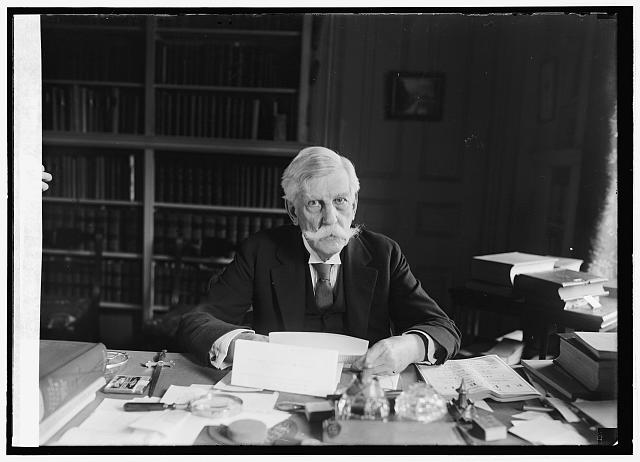In Florida, can Punitive or Treble Damages be Recovered Against a Deceased Tortfeasor's Estate?
Posted March 26, 2016 in Florida Probate Litigation, Florida Trust LitigationIn Florida, can Punitive or Treble Damages be Recovered Against a Deceased Tortfeasor's Estate?

Generally speaking, an estate takes the same position of the decedent. So, it would seem that any damages could be recovered against an tortfeasor's estate for the tortious actions committed by someone before they died. However, the Florida Supreme Court has held that punitive damages are not recoverable against an estate.
On the other side, one Florida Appellate Court has distinguished punitive from statutory treble damages and found that treble damages are recoverable.
Punitive Damages Cannot Be Awarded Against an Estate:
In 1988, the Florida Supreme Court considered whether punitive damages could be awarded against an estate.
The general facts are that the deceased tortfeasor was intoxicated and caused an automobile accident in which he killed himself and injured his passenger, Byrd. Byrd sued the tortfeasor's estate for punitive damages. The Fifth District Court of Appeal determined that it was unreasonable to impose punitive damages under those circumstances and stated:
The punishment actually is inflicted upon his heirs. Separation of the “punitive” and “exemplary” aspects of such awards is unjustified because general deterrence logically depends upon the perception of punishment suffered by the wrongdoer. When that punishment is diffused and unjustly inflicted upon the innocent, through a doctrine analogous to attainder, the deterrent effect is frustrated. It is unrealistic to suppose that such awards deter other prospective tortfeasors, especially if the criminal laws fail to do so.
Lohr v. Byrd, 522 So. 2d 845, 846 (Fla. 1988)
The Florida Supreme Court agreed. After evaluating how other states treated punitive damages, the Court held that sticking the heirs with responsibility for paying for the decedents wrongful act does not have the punishment effect that punitive damages are meant to have.
Justice Grimes does write a compelling dissent opinion on the issue, however, disccusing the history of Florida's survival statute and previous rulings dealing with punitive damages.
For additional context, you can view the Petitioner's Brief (Click Here), the Respondent's Brief (Click Here), the Reply Brief (Click Here), and an Amicus Curiae Brief submitted by the Academy of Florida Trial Lawyers (Click Here) by visiting the Florida State University College of Law Library's Archived Briefs and Opinions.
Treble Damages Are Recoverable Against an Estate
In Florida, treble damages are treated differently than punitive damages. The Second District Court of Appeal has stated that treble damages are remdial, and thus recoverable against an estate.
In Synder v. Bell, a conservator of woman brought a cause of action for civil theft against her husband's estate. The trial court dismissed the complaint on the basis that treble damages could not be recovered against the estate, and the conservator appealed.
The Second District Court of Appeal reversed, holding that treble damages are recoverable against an estate. To reach this result, the court analyzed the statute governing the civil remedy for theft and distinguished Lohr v. Byrd. The court stated:
Moreover, a conclusion that the treble damages recoverable under section 772.11 are a form of punitive damages flies in the face of the statute itself. The civil theft statute expressly provides that “[i]n no event shall punitive damages be awarded under this section.” § 772.11, Fla. Stat. (1995). However, the statute also provides for and mandates an award of treble damages *1099 upon a finding of liability. If treble damages are no more than a “form of punitive damages,” as the trial court concluded, the statute would contain an inherent inconsistency.The trial court's position fails upon a critical examination of the differences between judicially-created punitive damages and legislatively-created treble damages. Florida's civil theft statute is without question remedial, rather than punitive, in nature. See § 812.037, Fla. Stat. (1995) (“Notwithstanding §§ 775.021, 812.012-812.037 shall not be construed strictly or liberally, but shall be construed in light of their purposes to achieve their remedial goals.”) (emphasis added). See also Ziccardi v. Strother, 570 So.2d 1319, 1321 (Fla. 2d DCA 1990) (finding that the Civil Remedies for Criminal Practices Act was remedial in nature); Stuart L. Stein, P.A. v. Miller Indus., Inc., 564 So.2d 539 (Fla. 4th DCA 1990); Senfeld v. Bank of Nova Scotia Trust Co., 450 So.2d 1157, 1165 (Fla. 3d DCA 1984) (finding that the prior version of the civil theft statute, then section 812.035, was remedial in nature); cf. Brunswick Corp. v. Pueblo Bowl-O-Mat, Inc., 429 U.S. 477, 97 S.Ct. 690, 50 L.Ed.2d 701 (1977) (stating that treble damage provision of Clayton Act to any person injured in business or property by reason of a violation of antitrust laws is designed primarily as a remedy). Therefore, the Florida Supreme Court's decision in Lohr and its reasoning do not apply to the treble damages provision of section 772.11.
This opinion does not appear to be in conflict with Lohr, because of this distinction between punitive and treble damages. Although the Supreme Court of Florida initially granted review of Snyder, on the basis of conflict jurisdiction, they dismissed the appeal shortly thereafter "upon further examination and review." Bell v. Snyder, 778 So. 2d 970 (Fla. 2001).
It is important to note that there are few cases discussing this issue in more detail. And, it appears that Lohr may be limited to only judicially-created punitive damages claims. There is no case interpreting whether statutory punitive damages, such as those found in section 415.1111, Florida Statutes, are recoverable against an estate.
Contact Us:
PersanteZuroweste brings, and defends, actions contesting estate planning instruments. If you believe that you may need legal assistance regarding a Florida probate litigation matter, please contact us at (727) 796-7666.
About PersanteZuroweste
PersanteZuroweste has established a reputation as prominent trial lawyers serving clients throughout Florida. Our office is conveniently located to the Clearwater, St. Petersburg, and Tampa Bay communities.
